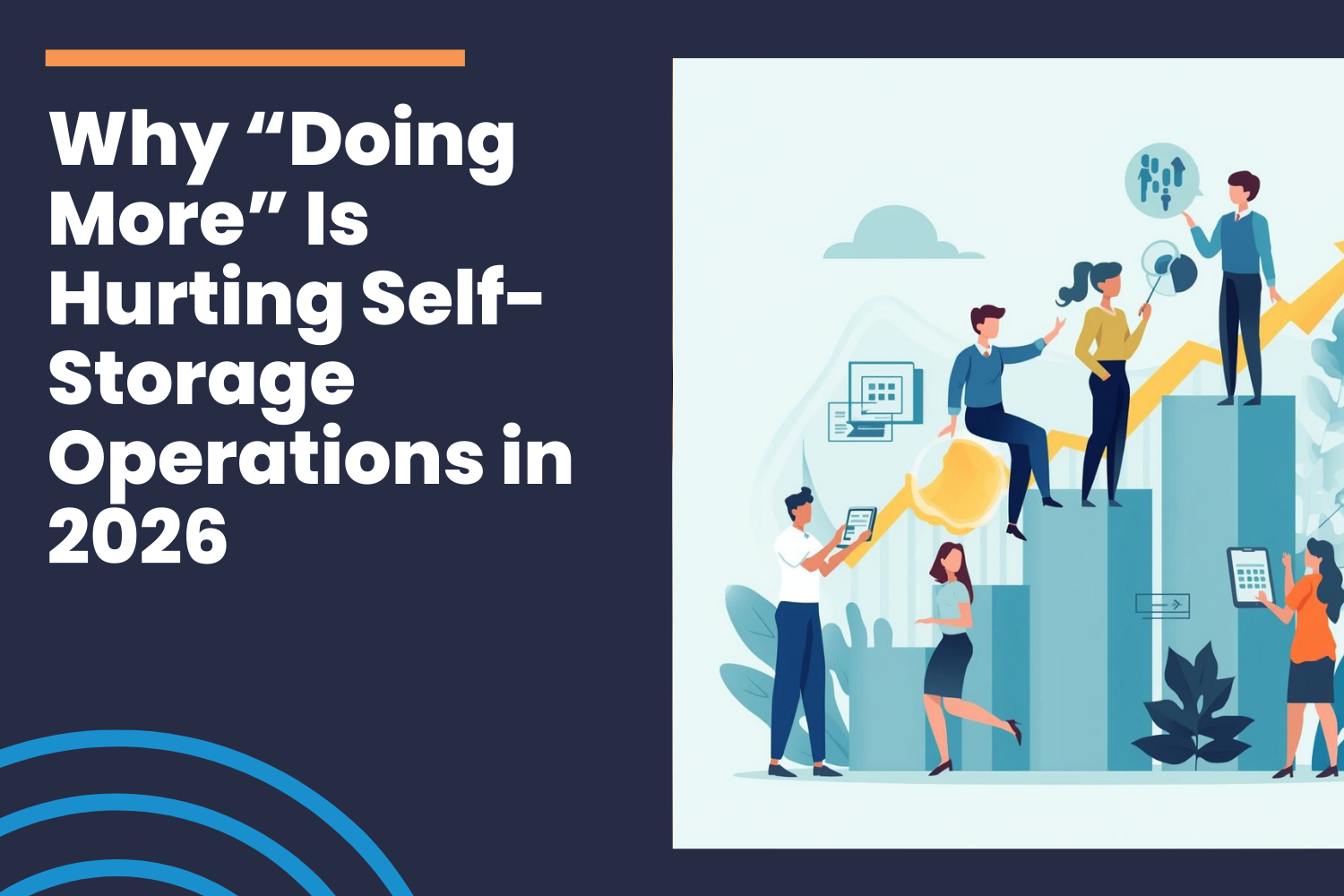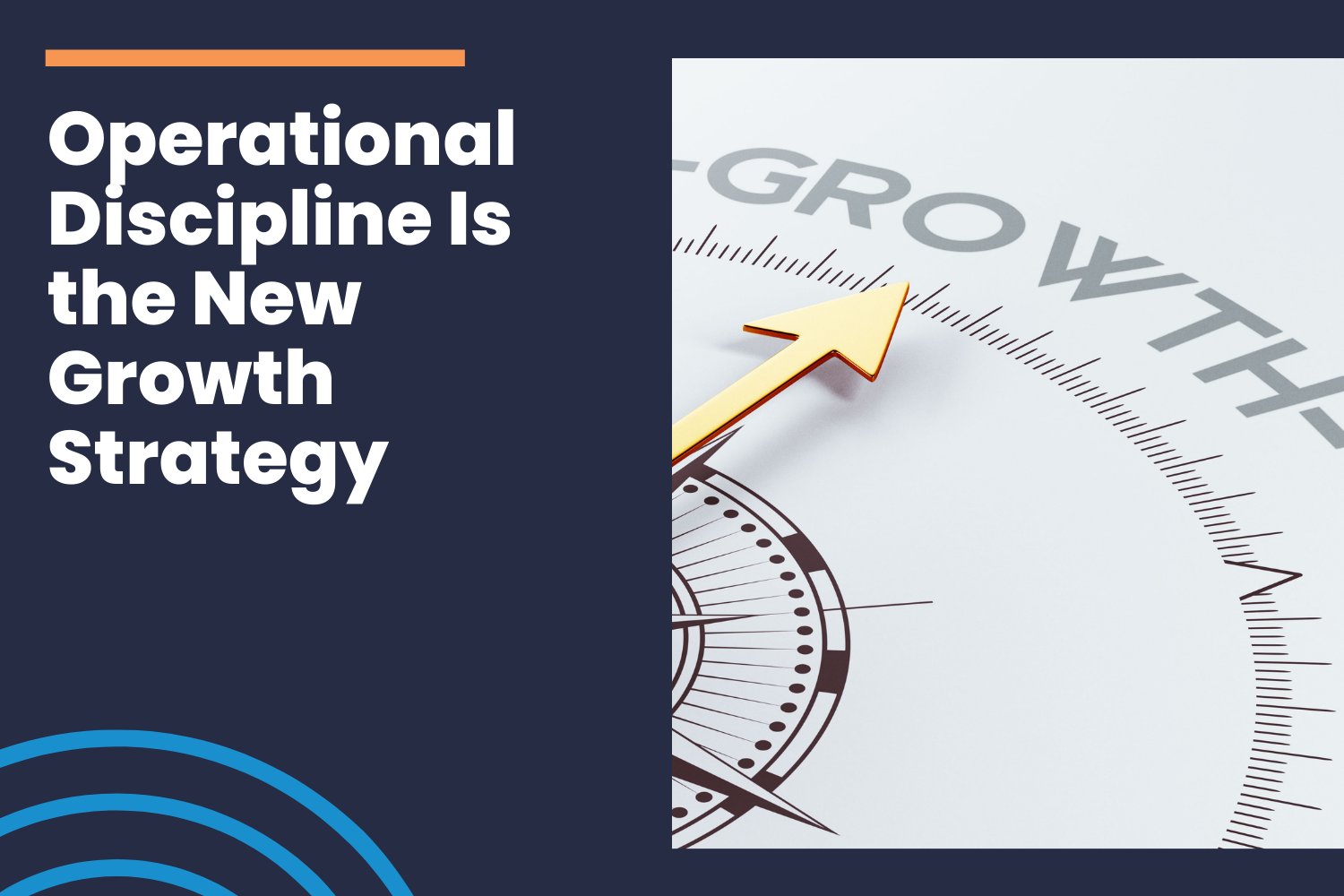The Productivity Paradox: What Happens When Your Self-Storage Team Gets 20 Hours Back Per Week
Imagine your facility manager walks into your office with a puzzled look and asks,
"Now that we've automated our delinquency process, what should my team be doing with all this extra time?"
It's a great problem to have – but it's still a question that deserves a thoughtful answer.
When self-storage operators invest in automation for delinquency and auction management, the immediate benefits are clear: reduced legal risk, faster unit turnover, and fewer administrative headaches.
But the most forward-thinking operators see automation as more than just a way to handle a necessary task – they see it as an opportunity to fundamentally redirect their human resources toward growth.
Let's explore how your team can leverage their newfound time dividend to drive real business results.
The Time Dividend: Quantifying Your New Resource
Before discussing where to invest your team's time, let's understand just how significant the time savings can be:
According to customer data, the average self-storage facility with 500 units spends approximately:
20-30 hours per month manually managing delinquent accounts
15-20 hours per month on auction preparation and execution
10-15 hours per month on related documentation, communications, and follow-up
That's potentially up to 65 hours per month – over one full work week – spent on tasks that automation can handle.
For a company with 20 locations, that time dividend potentially represents over 1,300 hours per month – the equivalent of nearly 8 full-time employees.
More Productive
“Since implementing AI Lean, our managers can focus on sales and customer service rather than being bogged down with lien paperwork, making post office runs, and being out of the office for hours. They can now concentrate on day-to-day tasks that matter.” - Marshall Calvert, Crescendo Self Storage
Revenue-Generating Activities That Drive Growth
With delinquency management off their plates, your managers can shift from "collection mode" to "growth mode."
Here are high-value activities that directly impact your bottom line:
1. Proactive Lead Management
Instead of chasing delinquent tenants, your team can focus on converting prospects.
This includes:
Following up on inquiries within minutes rather than hours
Conducting personalized facility tours that highlight your unique selling points
Building relationships with local businesses for referrals
Implementing targeted marketing campaigns to address seasonal vacancies
2. Strategic Upselling and Cross-Selling
Your team can increase revenue per customer by:
Analyzing customer needs to recommend appropriate unit upgrades
Creating moving supply packages tailored to customer situations
Developing premium service tiers (e.g., climate control, extended access hours, etc.)
Establishing partnerships with complementary services (moving companies, junk removal, etc.)
3. Digital Marketing Management
While previously consumed with paperwork, your team can now:
Respond promptly to online reviews (both positive and negative)
Create engaging social media content highlighting facility improvements
Develop targeted email campaigns for different customer segments
Optimize Google Business Profile and other local listings
As one Ai Lean customer put it: "We've shifted from spending our days chasing payments to generating them. Our managers now spend their mornings reaching out to leads and afternoons on customer service – it's transformed our business model."
Enhancing Customer Experience to Reduce Turnover
Tenant turnover is expensive. By focusing on customer experience, your team can dramatically improve retention:
1. Creating Personalized Customer Journeys
Developing welcome packages for new tenants
Implementing check-in calls 30 days after move-in to address any issues
Creating anniversary recognition programs for long-term tenants
Building customer profiles to anticipate needs and provide proactive solutions
2. Facility Experience Improvements
Conducting regular "customer journey" walkthroughs to spot improvement opportunities
Implementing cleanliness initiatives that exceed customer expectations
Designing intuitive wayfinding and customer communications
Creating comfortable reception areas and consultation spaces
3. Voice of Customer Programs
Developing customer feedback systems that capture actionable insights
Creating closed-loop resolution processes for service issues
Implementing tenant advisory groups for major facility decisions
Building community through tenant appreciation events
More Customer Focused
“Since implementing automation, we've been able to create a customer-focused approach to storage. Our customers are genuinely surprised by the level of service we provide – they expect a transactional experience but get something much more.” - Portia, Property Manager, FreeUp Storage
Operational Excellence That Reduces Costs
Your team can also focus on operational improvements that enhance profitability:
1. Preventative Maintenance
Developing comprehensive maintenance schedules to prevent costly emergency repairs
Conducting regular infrastructure audits to identify potential issues
Implementing systematic pest control and prevention measures
Creating documentation systems for all facility maintenance
2. Energy Efficiency Initiatives
Auditing current energy usage and identifying conservation opportunities
Transitioning to LED lighting and motion sensors
Implementing smart HVAC controls for climate-controlled units
Exploring solar energy opportunities where feasible
3. Process Optimization
Mapping and improving customer-facing processes beyond delinquency
Standardizing operating procedures across locations
Implementing inventory management systems for retail supplies
Developing data-driven approaches to pricing and occupancy management
"We've reduced our maintenance costs by shifting from reactive to preventative maintenance," notes one district manager. "When you're not constantly putting out fires with delinquent accounts, you can prevent the operational fires too."
Strategic Initiatives That Position for Long-Term Growth
Perhaps most valuable is your team's ability to focus on strategic initiatives:
1. Market Analysis and Competitive Positioning
Conducting regular competitive audits to understand market positioning
Analyzing demographic trends to adapt facility offerings
Identifying underserved market segments and developing targeted offerings
Creating sustainable competitive advantages beyond price
2. Staff Development
Implementing comprehensive training programs that develop management skills
Creating career pathways for high-potential employees
Building mentorship programs that transfer knowledge across your organization
Developing performance metrics that align with business objectives
3. Technology Adoption
Exploring complementary technologies like access control systems
Implementing customer-facing apps that enhance convenience
Developing data analytics capabilities to drive decision-making
Creating integrated technology ecosystems that differentiate your facilities
Randy, Director of Operations at FreeUp Storage, explains: "Automation hasn't just saved us time – it's changed how we think about our business. We're now focused on where the industry is going rather than just keeping up with daily tasks.”
Real-World Success: The Storage Star Transformation
When Storage Star implemented Ai Lean's automated delinquency management solution, they experienced dramatic improvements:
Delinquency rates fell to under 2% company-wide
Managers saved approximately 500 hours monthly across their portfolio
Unit turnover accelerated, allowing for faster re-renting
Customer experience scores improved
"Using Ai Lean has given Storage Star a competitive advantage," says Matt Garibaldi, CEO of Storage Star. "When more units are occupied by paying tenants, our prices can be lower, which makes customer acquisition easier."
The company redirected their team's focus toward customer acquisition and facility improvements, driving both occupancy rates and rental rates higher than industry averages.
The Compounding Effect of Strategic Focus
The true power of automation isn't just in the time it saves today – it's in the compounding effect of redirecting your team's focus from administrative tasks to growth-oriented activities.
When your managers spend their days enhancing customer experience rather than chasing payments, they create loyal customers who stay longer and refer others. When they focus on facility improvements rather than paperwork, they create environments that command premium rates.
When they engage in strategic planning rather than manual processes, they position your business for sustainable competitive advantage.
The question isn't just "What will my team do with the time saved?"…
It's "How will my business transform when my team can focus on what truly matters?"
Calculate Your Own Time Dividend
To understand the potential impact on your operation:
Track how many hours your team currently spends on:
Identifying and communicating with delinquent accounts
Preparing and conducting auctions
Managing lien documentation and compliance
Following up on auction outcomes
Multiply those hours by your average staff hourly cost
Consider not just the direct labor savings but the potential revenue from:
Improved lead conversion rates
Higher customer retention
Increased average revenue per customer
Accelerated unit turnover
100% More EFFICIENT
"If you are not using Ai Lean, you definitely need to ask your managers to look into it. It is 100% more efficient than most other programs I have used." - Brandy, Property Manager at FreeUp Storage
The numbers tell a compelling story: Automation isn't just about doing the same activities more efficiently – it's about enabling your team to do entirely different, more valuable activities.
Ready to discover how automation can transform your operation?
Contact Ai Lean today to learn how our end-to-end lien compliance solution can help your team focus on growth, not just delinquency management.
Continue Reading









